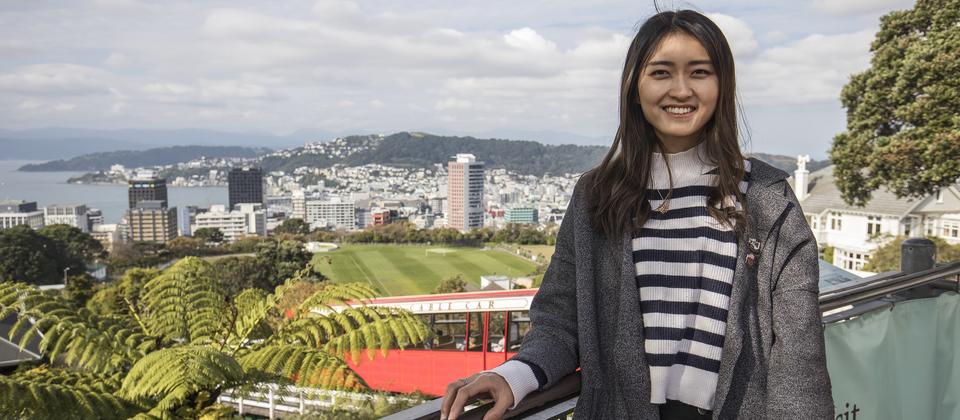
New Zealand
- You get a British-based education (due to their British influences) for a percentage of the cost. Students applying for jobs in the UK with a degree from New Zealand are highly sought after by UK employers.
- Staying in NZ is an amazing opportunity for anyone who looks for adventure. In New Zealand, there are literally thousands of things to do. Do you like to hike? There are plenty of mountains for you to explore. Do you enjoy being a beach bum? Then you get to enjoy the beaches throughout the year. Want some excitement? There are always new things to do. The scenery is different depending on where you go; you could drive an hour and have a completely different geography.
- Teaching standards are high and with small class sizes you will enjoy high levels of personal attention.
- All 8 Universities are among the world’s top 500 in the 2015/16 QS rankings. On individual subjects, the 2015/16 QS rankings also placed New Zealand universities amongst the world’s top 50 for teaching accounting and finance, business and management, computer science, civil and structural engineering, agriculture and forestry, veterinary science and nine other important disciplines.
- Employers around the world respect New Zealand’s education system for its ability to balance academic achievements with skills, producing creative, flexible thinkers who are competent at both practical and theoretical levels. NZ is also part of the Lisbon Recognition Convention which means our certificates, diplomas and degrees have international recognition.
- The education system is regulated with strong quality assurance systems across the board. It creates a consistency that gives you the flexibility to pick the institution you want, in the city or town that interests you most, knowing that you will get a quality education.
- The country has a comparatively low cost of living, abundant fresh food at reasonable prices and a wide variety of student accommodation options.
Living in New Zealand
Traditions & Culture:Maori culture is a rich and varied one, and includes traditional and contemporary arts. Traditional arts such as carving, weaving, kapa haka (group performance), whaikorero (oratory) and moko (tattoo) are practiced throughout the country. Practitioners following in the footsteps of their tipuna (ancestors) replicate the techniques used hundreds of years ago, yet also develop exciting new techniques and forms. Today Maori culture also includes art, film, television, poetry, theatre, and hip-hop.
Food:MÄori cuisine was historically derived from that of tropical Polynesia, adapted for New Zealand’s colder climate. Key ingredients included kÅ«mara (sweet potato), fern root, taro, birds and fish. Food was cooked in hÄngi (earth ovens) and roasted, and in geothermal areas was boiled or steamed using natural hot springs and pools. Various means of preserving birds and other foods were also employed. MÄori were one of the few peoples to have no form of alcoholic beverage.
Safety: The 2015 Global Peace Index, which compares 162 countries for the risk of personal violence, rates New Zealand as the world’s fourth safest country just after Iceland, Denmark and Austria.
Welfare: All Education members are signatories to the Code or Practice for the Pastoral Care of International Students. This is a quality assurance document administered by the New Zealand Qualifications Authority (NZQA). Education institutions take this seriously and are committed to providing the best quality care for students. Long before students step off the plane, the education providers are there helping students with learning assistance, affordable accommodation, and ongoing care and support.
Health:Most international students are not entitled to publicly funded health services while in New Zealand. If you receive medical treatment during your visit, you may be liable for the full costs of that treatment. Full details on entitlements to publicly-funded health services are available through the Ministry of Health, and can be viewed on their website at www.moh.govt.nz
Transport: Most of New Zealand’s cities are relatively small, so it is easy to get around. Day to day commuting in the city is often by bus, biking or walking. There are good bus networks in the main cities (Auckland, Wellington, Christchurch and Dunedin), plus Auckland and Wellington also have commuter rail and ferries.
Rail, bus, ferries
Flying
Flying is popular for longer trips, for both personal and business travel.
It’s only an hour to fly between Auckland and Wellington, compared to eight or so hours driving. The Wellington-Christchurch flight is about 50 minutes, compared to a five or six hour driving plus a three hour ferry trip. Of course, if you have time and want to see New Zealand, you may prefer the drive.
Visa Process
- In order to apply for the student VISA the student needs to have good academics
- Relevant background to the course of choice.
- Justified intention to study in New Zealand
- Proof of funds to support the tuition fees and the living expenses
Dependents information: Dependents can accompany if the applicant is traveling for the post- graduate course or a Level 7 course which is under skill shortage area.
Immigration on Arrival:Your passport will be checked when you arrive at the airport to make sure you’re allowed to come into the country. It must be valid for the whole of your stay.
How to Apply: The Alpine India Experts will help you.


Get In Touch
Have any quiry or suggestion